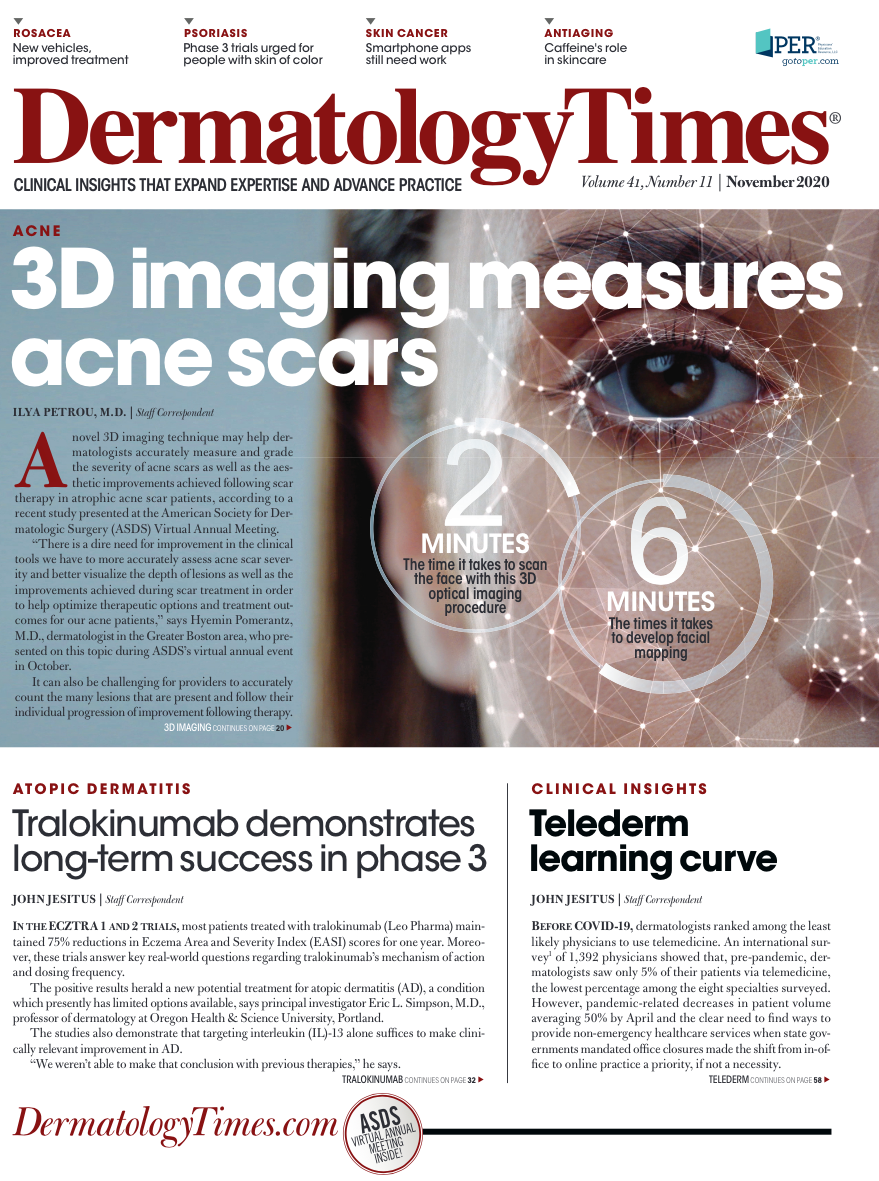- Acne
- Actinic Keratosis
- Aesthetics
- Alopecia
- Atopic Dermatitis
- Buy-and-Bill
- COVID-19
- Case-Based Roundtable
- Chronic Hand Eczema
- Chronic Spontaneous Urticaria
- Drug Watch
- Eczema
- General Dermatology
- Hidradenitis Suppurativa
- Melasma
- NP and PA
- Pediatric Dermatology
- Pigmentary Disorders
- Practice Management
- Precision Medicine and Biologics
- Prurigo Nodularis
- Psoriasis
- Psoriatic Arthritis
- Rare Disease
- Rosacea
- Skin Cancer
- Vitiligo
- Wound Care
Publication
Article
Dermatology Times
Skin of color patients lacking in psoriasis trials
Author(s):
A majority of psoriasis patients in phase 3 clinical trials for biologics are white, says authors of a recent study. As ethnicity and race may play a role in response to biologics, researchers emphasize need for more diversity in clinical trials.
An overwhelming majority of subjects in phase 3 psoriasis clinical trials are Caucasian, leaving unanswered questions about how one’s ethnicity or race might impact the safety and efficacy of today’s psoriasis treatments, according to a research letter published August 7 in the British Journal of Dermatology.
Psoriasis impacts people with all skin colors. Studies on U.S. adults suggest psoriasis affects about 3.6% of Caucasians, 1.9% of African Americans and 1.6% of Hispanics. Up to 0.47% of Asians are thought to have psoriasis, according to East and Southeast Asian population studies.
Researchers have found evidence that patients’ ethno-racial backgrounds might impact how they respond to biologics and other treatments, according to the authors.
“... evidence has shown that non-white ethnicity is associated with a reduced likelihood of responding to biologics up to one year in patients with psoriasis,” the authors wrote.
In general, studies have shown that about 20% of new medications demonstrate interracial/ethnic variability in efficacy and safety profiles, dosing, pharmacokinetics, pharmacogenetics and other factors.
“Phase 3 clinical trials provide important large-scale safety and efficacy data on novel treatment options. The inclusion of non-white patients in clinical trials is critical as it can inform tailored treatment algorithms and the development of educational resources and sup- port groups,” according to the authors.
An example of how diversity in research can impact treatment algorithms is in hypertension. While black people are at increased risk of developing hypertension, there wasn’t enough data to make evidence-based treatment decisions for black patients until the Antihypertensive and Lipid-lowering Treatment to Prevent Heart Attack Trial, in which more than a third of subjects were black. Data from the trial led to specific treatment recommendations for black patients that are in the Joint National Commission hypertension treatment guidelines, according to the research letter.
University of California, San Francisco, researchers reviewed the ClinicalTrials.gov database looking for completed phase 3 clinical trials of plaque psoriasis in adults before May 8, 2020.
They identified 82 phase 3 clinical trials evaluating psoriasis treatments from topicals to systemic and biological medications, representing nearly 49,000 patients. When they analyzed enrolled subjects’ ethnicities and races, the researchers found 62 of the studies reported on subjects’ ethno-racial information, with 64.5% of those studies reporting comprehensive race and ethnicity data.
Nearly 86% of subjects in those 62 studies were white, according to the research letter.
Considering the global burden of psoriasis, which is estimated between 0.91% to 8.5% of the population, the inclusion of 14.2% non- white subjects in phase 3 psoriasis studies severely under-represents adults with skin of color with the skin disease. That’s particularly true when it comes to black subjects, who made up 3.09% of subjects in those phase 3 psoriasis trials.
Increasing clinical trial diversity is a critical goal, the authors wrote.
An amendment in the Health Revitalization Act, which went into effect in 2017, requires researchers to report subjects’ race and ethnicity in National Institutes of Health- (NIH-) funded trials.
Psoriasis trial researchers should consistently report safety and efficacy data sub-analyses by ethnicity and race, regardless of the funding source.
On a bigger scale, new strategies are needed that focus on diversifying clinical trials and data registries, such as implementing goals specifically aimed at recruiting people of color; employing people and involving organizations in marginalized communities to help with recruitment efforts; and funding translation services when necessary in recruitment and informed consent processes, they wrote.
Disclosures:
None
Reference:
1. Reddy VD, Myers BA, Chan SY, et al. A review of current phase III clinical trials of plaque psoriasis: Underrepresentation of non-white subjects and need for reform. Br J Dermatol. 2020.

Newsletter
Like what you’re reading? Subscribe to Dermatology Times for weekly updates on therapies, innovations, and real-world practice tips.






















